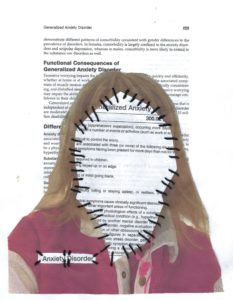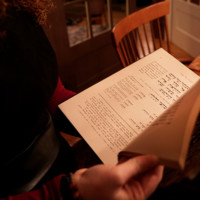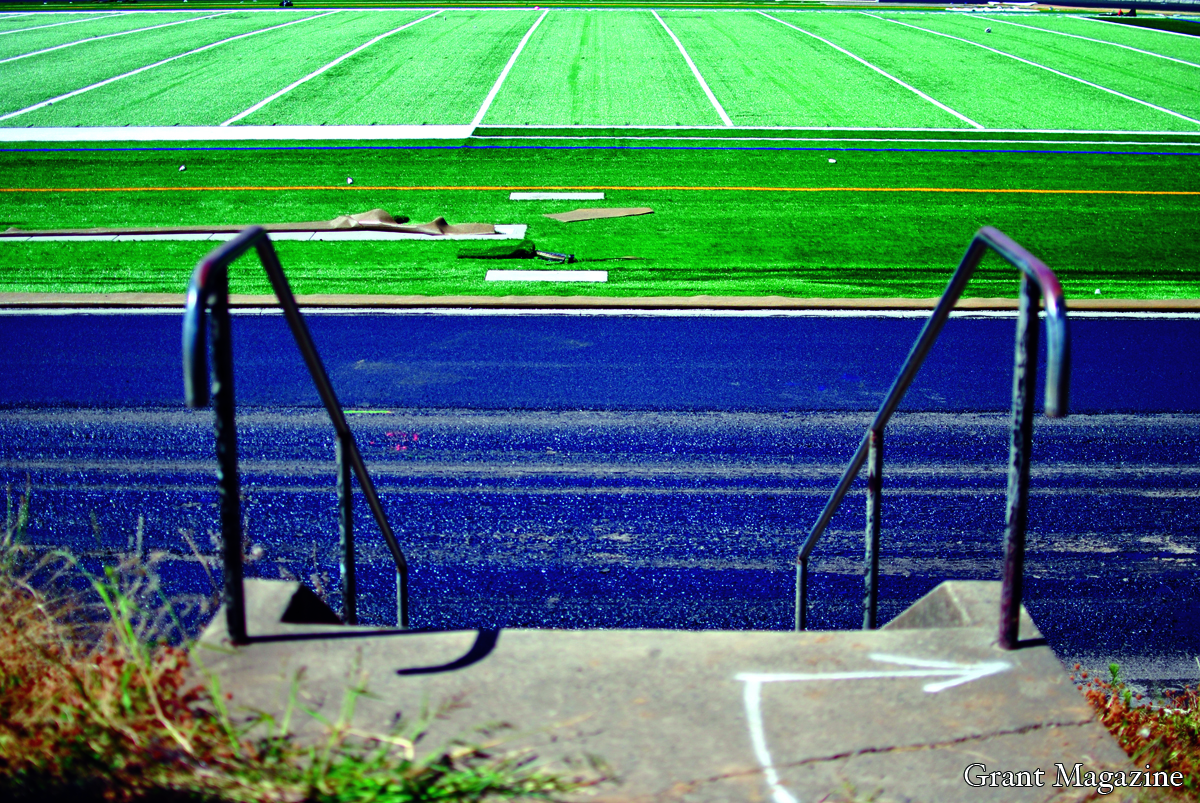
I was diagnosed with Generalized Anxiety Disorder at 11 years old. At the time, it felt like a release of my suffering, a name to the distress I had felt all my life. I used to hold that diagnosis close to my heart. If someone asked me to define myself, “anxious” would be one of the first words I would use. I couldn’t envision a life without anxiety — it was permanently attached to me. If it ever went away, who would I be? I clenched it tightly in my fist, trying to keep it forever. I am not the only one who has done this.
Like many during the COVID-19 quarantine, I was in the throes of a full-fledged internet addiction. My days became hazy blurs of Zoom calls and the never ending cacophony of Tik-Tok, Instagram, YouTube and Twitter. It doesn’t take long while scrolling through these platforms before you find a post starting with “5 signs you have (insert mental illness)” or “5 things people with (insert mental illness) can relate to.”
In the online world, two things that brought me distress in my real life — my anxiety diagnosis and lesbian identity — were not only celebrated, but gave me a heightened social standing. I was granted an all-access-pass into an elite group of similarly internetaddled teens.
My two best friends at the time had diagnosed themselves with a swath of mental illnesses including anxiety, depression, obsessive-compulsive disorder (OCD) and attention-deficit/hyperactivity disorder (ADHD). These diagnoses were a way to alleviate cause and personal blame from our distress. We were convinced that our brains were simply chemically imbalanced, and there was nothing we could do about it.
With the unstable social, political, economic and literal environmental climate my generation has grown up in, it is no surprise to me that these markers have become crucial to our perception of our own identities, and how we perceive our peers. In an increasingly confusing world, we have to find ways to make sense of it.
This phenomenon is not isolated to a screen. I’ve been in many conversations with close friends where diagnoses become weapons wielded at each other — vulnerable discussions become competitions where the person with the most diagnoses wins: “I have OCD, depression AND anxiety, beat that!”
It is always a scramble to the top of the ladder, each mental illness another rung. There is never questioning of what caused the distress leading to the diagnosis. Instead, the diagnosis itself is viewed as the root where all suffering stemmed. Mental illness is seen, and therefore misinterpreted, as fundamental, rather than a complicated mix of environmental and genetic factors. In reality, suffering is a symptom of a larger problem.
Jonah Peretti, the founder of Buzzfeed, wrote years before founding the company that capitalism functions to break down our perception of ourselves in order to create an realm of micro-identities that can be commercialized and therefore marketed to.
Ironically, years after he wrote that paper, he began exploiting that very phenomenon, and it has proved immensely successful. Buzzfeed now stands as a prime example of commercializing identity in order to exploit it for social and financial gain.
According to Harmony Healthcare, Gen Z has the highest rate of mental illness of any generation, with over 40% of young people having a mental health diagnosis. Part of this can be attributed to increased awareness of mental illness and de-stigmatization of these struggles, but that is not the full story. We are the first generation with full access to the internet. The climate crisis looms above us. The political and economic environment in our country continues to become harsher. We are living through a pandemic. To deny the context of these struggles is to deny healing.
P.E. Moskowitz, an author and theorist, argues that viewing mental illness as an issue of societal, mainly capitalist, structures is a much more effective way of tackling psychological distress. There will always be differences, neurological or other, in any society, but why these differences cause distress has almost nothing to do with the individual. Moskowitz argues that the reason it is difficult for neurodivergent people to thrive in our society is due to the structures around them, and to believe that mental illness is inherent would be ignoring systemic inequities and the trauma they cause.
Moskowitz writes about shifting our mental health system to be similar to the social model of disability, where social structures are meant to accommodate neurological and physical differences, relieving them from existing barriers. This model is rooted in the idea that people are disabled by societal boundaries, not themselves. To think that living under oppression, of any kind, would have no effect on mental health and illness is not only naive, but wrong.
Based on data collected by the National Library of Medicine, Black people have three to four times more psychotic episodes than their white counterparts. This is not because Black people’s brains are fundamentally more mentally ill than white people’s brains. In fact, the only difference between white and Black brains is the oppression that they face on a daily basis.
The dichotomy between sick and healthy, divergent and typical, insane and sane and how we define those terms goes to further reinforce power structures based on race, gender, class and sexuality. According to the American Psychiatric Association, 11% of Black Americans are not covered by health insurance, while 7% of white Americans are not. Even for those who are insured, there is no guarantee that they will receive the necessary care. Diagnosis is a privilege, and cannot be answer to absolving suffering, especially if it is not accessible to all.
For those who can access diagnosis, it can be immensely helpful. Diagnosis allowed me to access psychiatric medicines that have improved my quality of life. For others, it can create access to the resources they need in order to fully participate in society.
However, diagnosis on its own is not the solution. Based on data from the insurance company QuoteWizard, one out of every four American adults currently has a psychiatric prescription. If a quarter of the population is “ill,” how do we define “healthy?”
For centuries, people have tried to answer that question. There have always been theories about what constitutes disordered behavior, and how we categorize it. In our modern landscape, which breaks down our identities in order to commodify them, mental health diagnoses are now used as a means of furthering one’s sense of self. Moskowitz argues, “We’ve learned that gender is changeable, that sexuality is fluid, and yet more and more we’re chained to the idea that mental health is inherent and forever.”
In early 2022, I was diagnosed with two more mental illnesses. My initial reaction was almost celebratory – I had moved up several rungs on the suffering ladder, which gave me a heightened ability to “one-up” people in discussions about distress. But for the first time, something about that unspoken yet widely understood system felt deeply wrong.
My diagnoses were the result of some of the greatest pain I have ever experienced, and still experience. Eventually, it dawned on me that the only way I would be able to heal was if I acknowledged and worked through my distress. I had to stop viewing my diagnoses as fundamental parts of myself that would never change – because for my own health, they had to. Continuing to let my diagnoses split me apart would never make me whole.
As I loosen my fist around my mental illness diagnoses, letting them exist outside of my
perception of myself, it feels like cold water being splashed on my face. I used to think I could find freedom from my suffering if I adopted it into my personality – if I folded them into my life so completely that there was no difference between illness and myself. Reckoning with the fact that I will always feel distress, mentally, emotionally, physically or otherwise, but that my pain doesn’t define me, has been the greatest freedom of all. ♦




